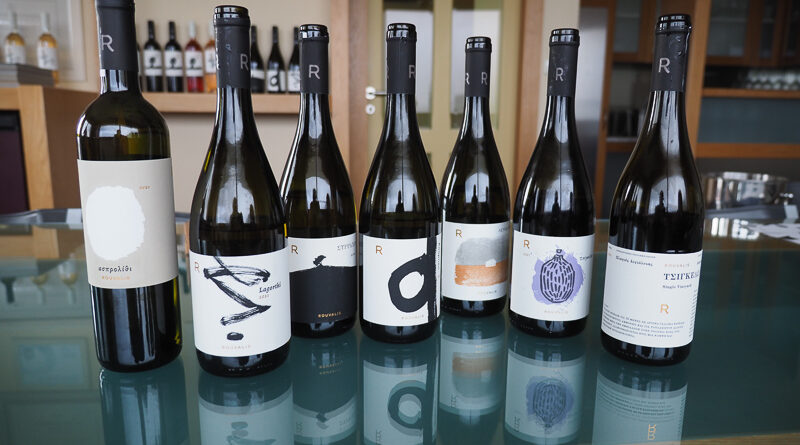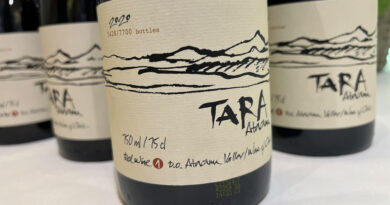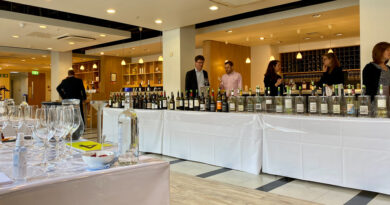Exploring Greece (2) Rouvalis Winery, Aigialeia
Website: https://www.rouvaliswinery.gr/en/
This was a great visit to a winery making excellent wines from some spectacular terroirs. We are in Aigialeia, in the northern Peloponnese of Greece, and if there hadn’t been a lot of fog, the view from the high-altitude vineyards would have been mindblowing. Still, the wines made up for it.
The larger region here is West Achaia, and it has two very different regions, close to each other. There’s the west-facing low-altitude Gulf of Patras, but here we are in high-altitude east, which is mountainous, and has a much cooler climate.
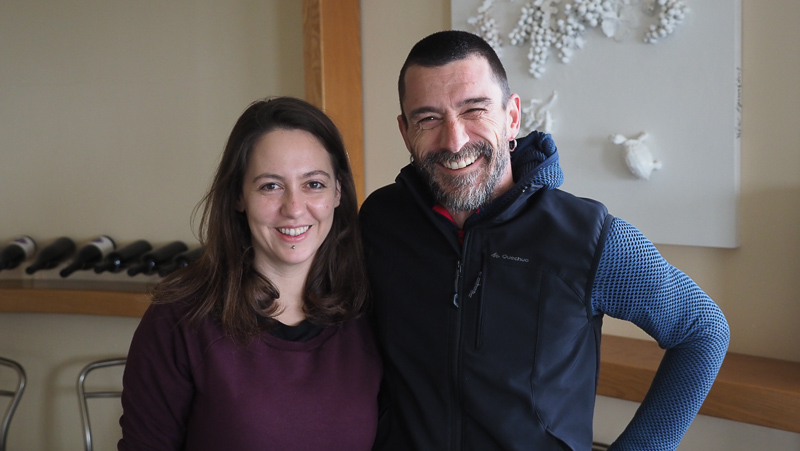
I met with Theodora Rouvalis her husband Antonio Luis. Both are enologists and have worked abroad, and they came back from their travels in 2017 to take over the family winery. Theodora’s father established it back in 1990. Like many Greek enologists who started wineries in this first wave of modern Greek wine around 30 years ago, he’d studied at Bordeaux. He’s from the region, but also has the claim to fame of being the first winemaker to make PDO Santorini wines in 1982.
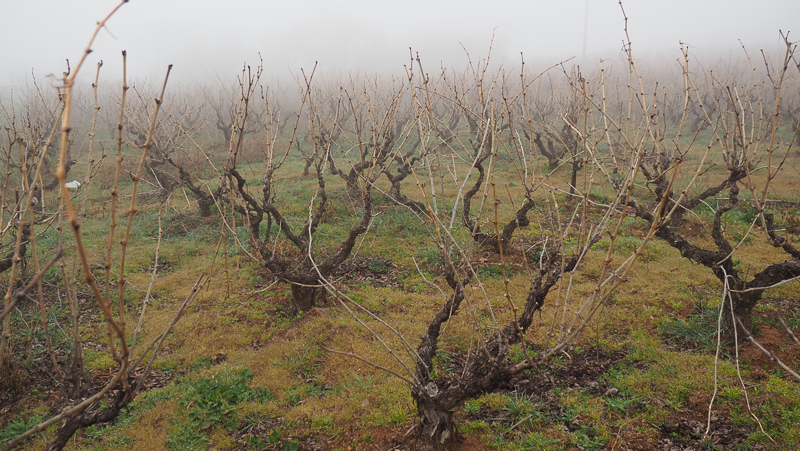
Aigialeia has 5000 hectares of vines, but only 1000 are for wine (900 of these are Roditis), at an average altitude of 862 m, with an average gradient of 33.5%. Rouvalis describe this as heroic viticulture, with altitude, steep slopes, and often terraces. In the region, altitude determines what is planted: under 300 m they plant lemon trees, up to 500 m olive trees, then from 500-1100 m it’s vines.
In the region, there are seven rivers all going to the Corinthian Gulf, each separating different microterroirs. Under 700 m there are gentle slopes, but then it gets much steeper. It’s a tectonically active region, and some of the high-altitude terroirs have sea fossils. Each year the land rises 4 mm, so this is quite significant.
Soils are very sandy with good drainage. The other factor is that this is north facing. Almost all Greece is south facing. The reason for north-facing slopes is the fault of the Corinthian Gulf, and the north wind is cooling. The mountains of the Central Peloponnese are 2000 m high so they cut out the southern winds that would otherwise bring heat.
Rouvalis plant Riesling at 1000 m because it is 7 C cooler than at sea level. They have 10 hectares that they started planting in 2018 at over 1000 m. The soils here are bony with Dolomite stone.
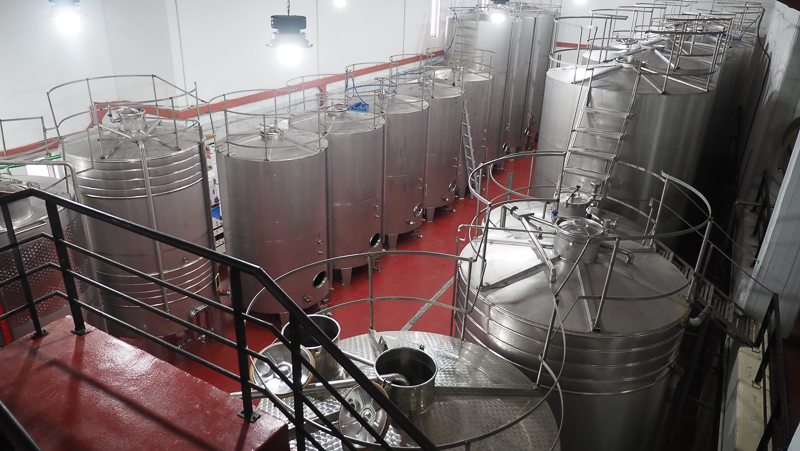
The proximity to the sea results in air currents from the sea to the mountain in the day, and the other way at night. Organics is relatively easy here because of the low disease pressure. In a difficult year they might need to treat three times. When Theodora was in Bordeaux the average was 13 treatments. They have conditions for mildew once in 20 years.
‘We have all the advantages of northern climates without any of the disadvantage,’ she says. The rain increases by 45 mm each 100 m gain in altitude, so there’s good water availability, and they have snow and rain in the winter. They don’t have water during the summer, though: this can be a problem because they can’t irrigate in the mountains – it is too difficult.
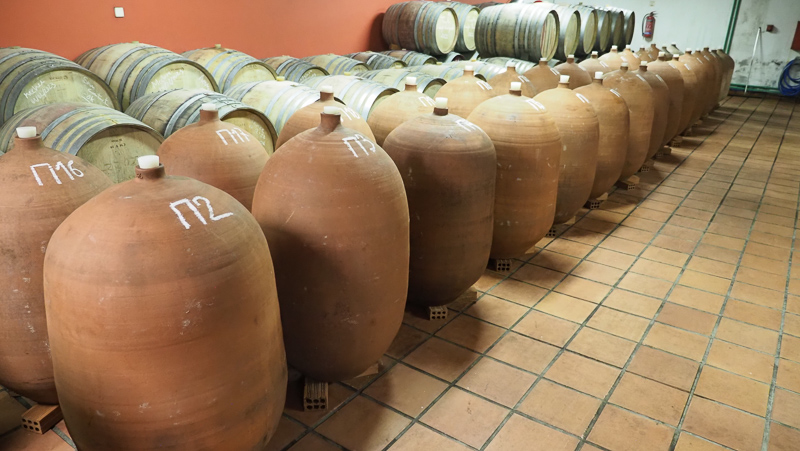
The winery was built in 1994 on six levels so it is all gravity flow, and the wines have seen a total rebranding over the last three years. The new labels look really good.
90% of the vines here are Roditis. It is a very old grape with the first mention in 30 AD by Pliny. It has good acidity, but isn’t very aromatic. The second-most planted grape in Greece, it’s often associated with Retsina, but not here. It behaves very differently at altitude to how it works on the lower vineyards (where it makes large volumes, with less flavour). It has a slight reddish hue to it, but is usually vinified as a white wine. Patra PDO was created on the limits of the community, but 90% is in Aigieliea.
THE WINES
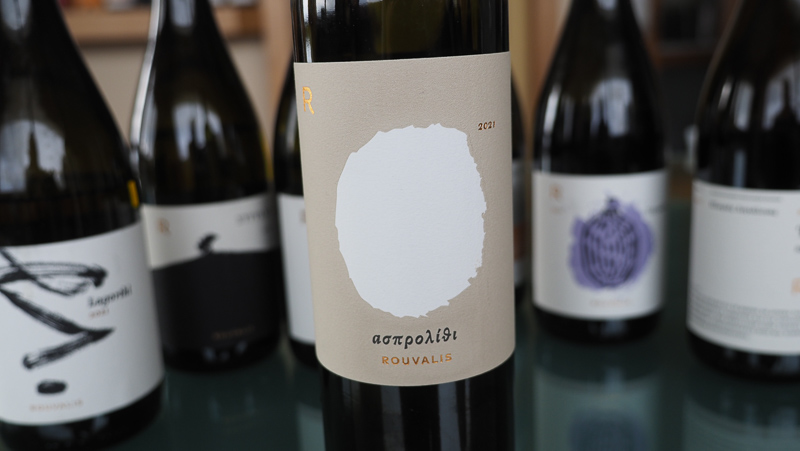
Rouvalis Asprolithi 2021 PDO Patra
12% alcohol (usually 11.5%). Roditis grown at 840-1100 m from the slopes of Aigialeia. Stainless steel vinification. This is taut and linear with a lovely citrus core, some fine-grained structure, and some mineral notes. Some notes of mandarin and a touch of salinity on the finish. Lovely texture to this wine with some mountain quality. 90/100 (retails at €7 in Greece)
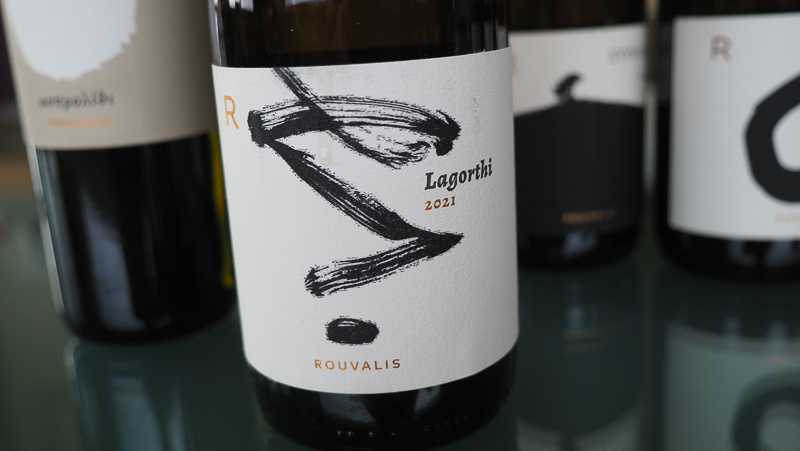
Rouvalis Lagorthi 2021 PGI Slopes of Aigialeia
An indigenous grape saved in the 1990s by her father when it was facing extinction. There are 40 hectares now in the region. But he didn’t like it so much after a while, but they have been experimenting with different vinification methods. This one is made with skin contact during fermentation (25 days, then aged in amphora for three months), but hasn’t picked up much colour from the skins, although the aromatics have improved. Very interesting aromatics of sage, chamomile and mint, as well as citrus. The palate is taut and herbal with powerful citrus fruit. From vineyards at 800 m. 92/100 (€10)
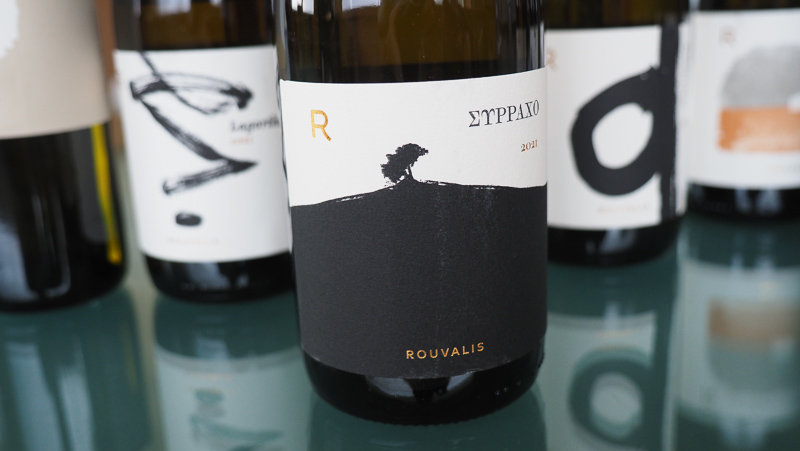
Rouvalis Syracho 2021 PGI Peloponnese
A blend of 60% Viognier and 40% Roditis, from 900-1100 m. Syracho means a point where two slopes meet at the top. Viognier is at 13.5% alcohol and Roditis is 11%, and they are cofermented. Five months in stainless steel. This is powerful and fruit driven with notes of pear, lemon and apricot, with a fine spicy edge. Has freshness but also some richer fruit notes, finishing quite taut and spicy. A really nice balance here. 91/100 (€10)
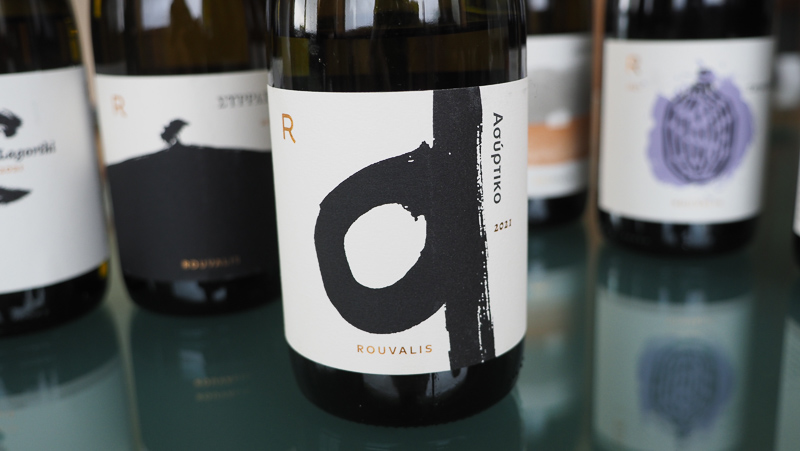
Rouvalis Assyrtiko 2021 PGI Slopes of Aigialeia
It’s Greece’s flagship grape, and planted on the mountain here it is very different, with low pH (2.92 this year). Taut, focused citrussy nose. The palate is fresh and quite stony, with lively acidity, a touch of dried herbs, and finishing with a tapering wet rock minerality. Has some appley hints, too. 91/100
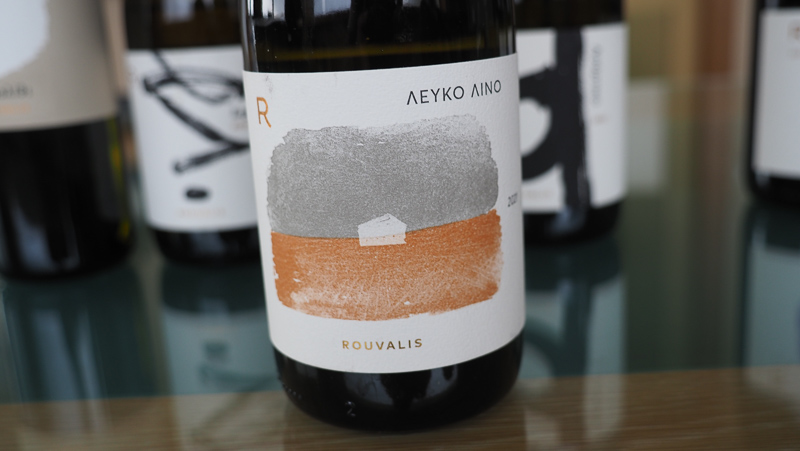
Rouvalis Lefko Lino 2021 PGI Slopes of Aigialeia
100% Riesling from the mountain top, 1000-1100 m. Has a low pH of 2.8. Bright and limey with lovely aromatics that are very typical of Riesling, with a touch of dried herb. Powerful palate with keen acidity and lovely purity, showing tension and focus, as well as a hint of structure. Dry and intense, this is a wonderful mountain Riesling with a great acid line. 94/100 (€15)
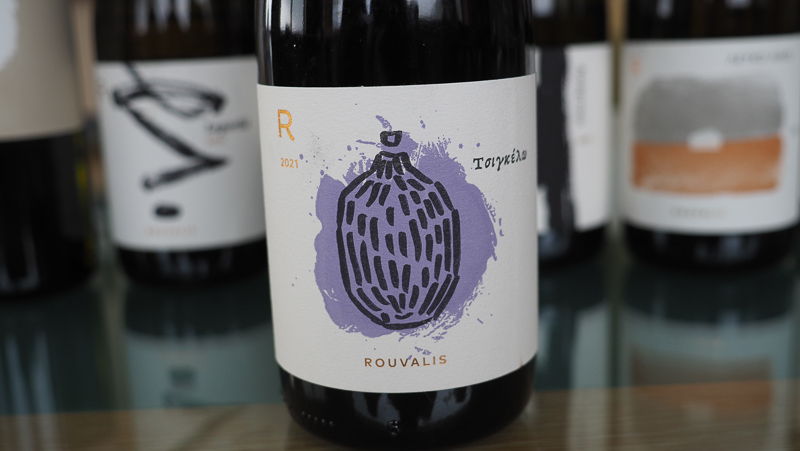
Rouvalis Tsigello 2021 PGI Slopes of Aigialeia
This is Mavrodaphne from 500-650 m. Previously used for sweet wines, in the last 20 years people have begun vinifying it as a dry wine. ‘For me, Mavrodaphne has the same potential as Xinomavro,’ says Theodora Rouvalis. ‘But because of the sweet wine appellation, we aren’t allowed to write the name on the label. But I believe it has a very big potential.’ This is vinified in stainless steel and aged in amphora for five months (160 litre amphorae). Lovely sweet red fruit nose with wild strawberry, red cherry and some lovely herbal hints. The palate is juicy and bright with some herbal hints under the sweet red cherry fruit and a touch of raspberry. Such lovely fruit, with a sweet core to it, and a bit of crunchy structure on the finish. 93/100 (€13)
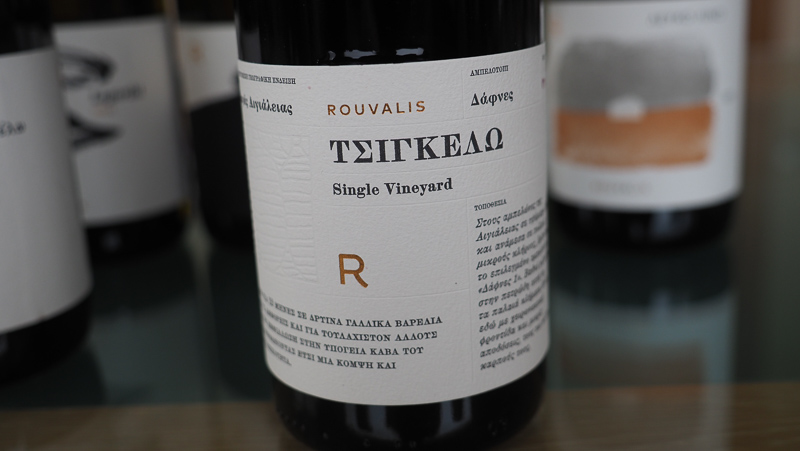
Rouvalis Tsigello Single Vineyard Dafnes No 1 2020 PGI Slopes of Aigialeia
From a single vineyard, 500-650 m, 1700 bottles made. Fermented in barrels and aged for 12 months, and then a month in amphora. Distinctive spicy nose with dried herbs, pepper and some cedar spice. The palate has concentration and structure, with taut raspberry and cherry fruit with some tannins and then a savoury, spicy, slightly woody edge. Combines fresh red fruits with good structure and acidity, and has the potential to age. 93/100 (€20)
UK importer: Maltby and Greek
Exploring Greece

